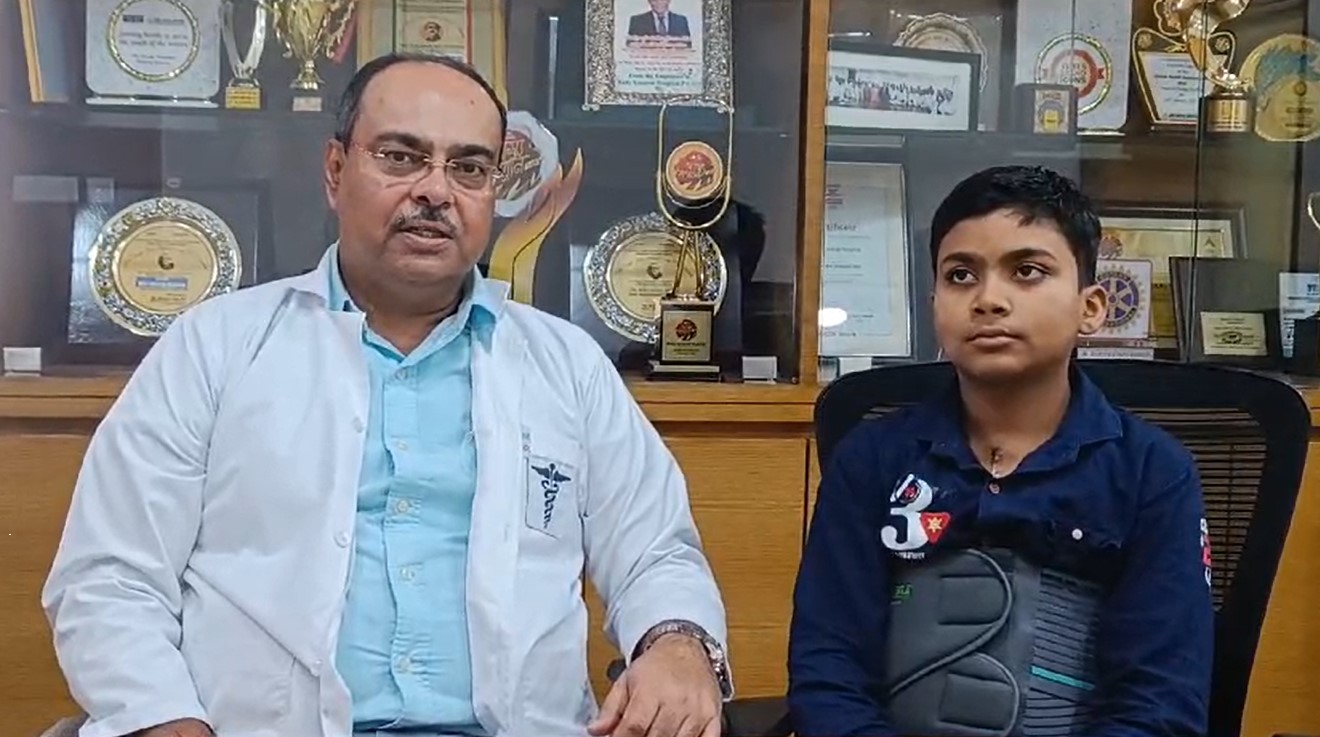
A 12 year boy from Patna had been admitted in Ruby General Hospital under the care of Dr. Sanjay Singh (Cardiothoracic and Vascular Surgeon) with a history of perimembranous ventricular septal defect (A hole in the upper section of the heart’s ventricular septum, usually located beneath the aortic valve) from birth along with severe aortic regurgitation (A heart condition where the aortic valve doesn’t close properly, causing blood to leak back into the left ventricle). After evaluation and relevant investigations the echocardiogram revealed that aortic regurgitation was leading to leakage towards the right ventricle. After discussion with the family members and with their due written and informed consent, the boy had been posted for surgery. During the 3 hour surgery, first the VSD closure had been done and below the VSD in the right ventricle, there had been a fibrous mass due to aortic regurgitation. Though the valve had been repaired yet, there was still a mild aortic regurgitation. The team had been in a dilemma whether to leave the valve as it is or replace it. Since, the heart had been in a poor condition with the right ventricle widely dilated, the team had decided to replace the valve. On reopening the aorta it was found that the size of the valve was quite small and an adult valve could not be inserted in its place. Further, an aortic route widening surgery had been done to facilitate valve replacement with 21mm valve. During the surgery the boy had received Packed Red Blood Cells (PRBC) and Fresh Frozen Plasma (FFP). The postoperative period had been uneventful and on the first postoperative day, he was extubated followed by discharge on the fifth postoperative day. After ten days the child had come for review check up and when he was asked about how he felt, he smiled and shyly said that he did not realize that such a major and risky surgery had been performed on him. His parents too were very grateful and thanked the hospital and the expert CTVS team.